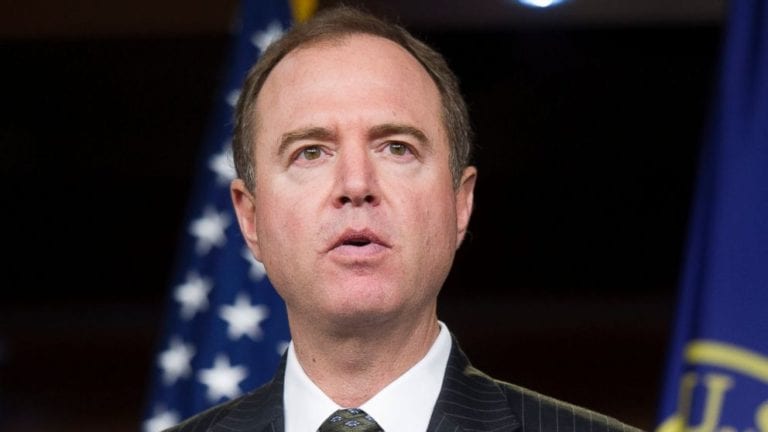

Republican Under House Ethics Probe as Dem Colleagues Get Away with Similar Offense


Why is the House Ethics Committee selectively investigating a Republican lawmaker for publicly commenting on classified material while two Democrats who committed similar acts go unscathed? It appears to be a new low for the notoriously remiss panel that’s charged with investigating and punishing corrupt legislators but instead has a long tradition of letting them off the hook. In short, the committee is supposed to uphold high standards of ethical conduct in a bipartisan manner, but that’s hardly been the case.
In this latest matter, the House Ethics Committee launched an investigation against the Republican chairman of the Intelligence Committee, Devin Nunes, a few days after getting bombarded with complaints from Democrats and leftist groups. Nunes, a veteran congressman who represents California’s Central Valley, is accused of making unauthorized disclosures of classified information to the media as his intel panel probed Russian meddling in the 2016 presidential election. This apparently occurred during a press conference in which Nunes revealed that President Donald Trump and his associates had been surveilled by American intelligence agencies and unmasked in reports. In its statement announcing the Nunes investigation, the House Ethics Committee writes that it’s determining if Nunes made “unauthorized disclosures of classified information, in violation of House Rules, law, regulations, or other standards of conduct.”
In the meantime, the panel is ignoring similar—if not more serious—complaints against Democratic members of the House Intelligence Committee who disclosed classified information in flagrant violation of the rules. The lawmakers, Adam Schiff and Jackie Speier, publicly discussed the substance of classified calls between Trump’s former National Security Advisor, retired Army General Mike Flynn, and Russian Ambassador Sergei Kislyak. In late March Schiff, who represents parts of Los Angeles County, spoke to an audience at the Brookings Institution in which he commented on an intelligence community intercept of a December 29, 2016 conversation between Kislayak and Flynn. The conversation’s contents were leaked to the news media and widely reported. In his Brookings Institution speech, Schiff stated: “And then you have leaks that expose malfeasance or illegality. Now, I put that kind of leak, I put the Flynn leak in that category. And what was most disturbing to me, frankly, about that was: here you had a situation where the president is informed that his national security advisor . . . has lied to the vice president, and probably others . . . about a conversation with the Russians over sanctions imposed over hacking in the election to help the president.”
A few weeks later Speier, who represents San Francisco, commented publicly on both the contents of the Kislayak-Flynn conversations and Flynn’s subsequent “unmasking” as a U.S. person incidentally intercepted by the intelligence community. Here’s what she said in a widely published news report: “Now, if in fact, it was unmasked and if it was General Flynn. You have to understand the context in which it was unmasked. We do know that. Ambassador Kislayak and General Flynn were freelancing sanctions relief at the end of December, when he had no portfolio in which to make any kind of negotiations with Ambassador Kislayak.” Speier didn’t disclose how she knew about the conversation between Kislayak and Flynn or about Flynn’s “unmasking,” but the statement attributed to her also appears to confirm the contents of leaked, classified information.
Judicial Watch has asked the Office of Congressional Ethics, the independent, nonpartisan entity that refers matters to the House Ethics Committee, to investigate whether Schiff and Speier violated rules since the House panel appears to have no intention of examining the matter. In a hand-delivered letter to the chairman and co-chairman of the House Office of Congressional Ethics Judicial Watch points out the following: “If the standard for filing a complaint or opening an ethics investigation is that a member has commented publicly on matters that touch on classified information, but the member does not reveal the source of his or her information, then the complaints against Chairman Nunes are incomplete insofar as they target only Nunes. At least two other members of the House Intelligence Committee have made comments about classified material that raise more directly the very same concerns raised against Chairman Nunes because they appear to confirm classified information contained in leaked intelligence community intercepts.” If the Ethics Committee is taking the time to examine Nunes’s innocuous statements on Obama’s surveillance on the Trump team, it ought to expand its investigation to include the other members of the Intelligence Committee who seem to have flagrantly violated the rules.















